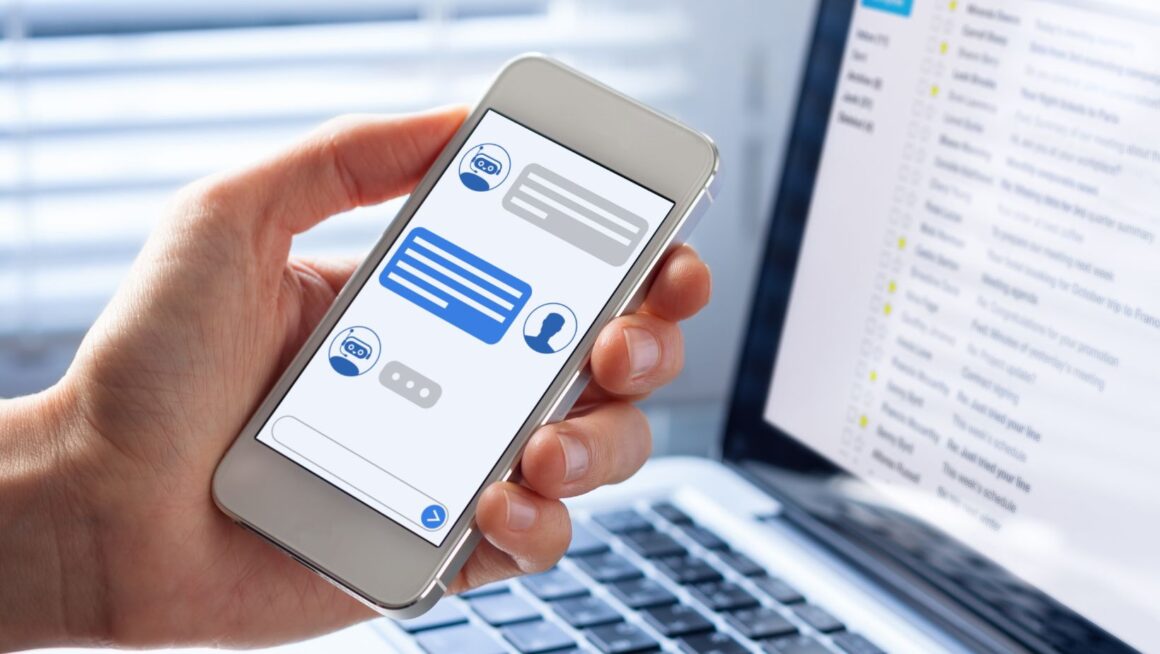
Virtual girlfriend chatbot and apps are everywhere now. You open an app, pick a pretty avatar, and suddenly you have “someone” who texts back instantly, flirts with you, remembers your bad day, and never gets tired of listening.
For some people, that feels like a miracle: finally, no judgment, no ghosting, no awkwardness.
For others, it looks like a trap: endless fake affection that might slowly replace real life.
The truth sits somewhere in between. Virtual girlfriends can help with loneliness and anxiety — and they can hurt, especially if they become your main emotional lifeline.
Let’s walk through how they affect the mental health of young people and adults, what the data says, and how to use them without losing yourself.
How many people are actually doing this?
This isn’t a tiny niche anymore.
- A Common Sense Media report found that nearly 3 in 4 teens in the US have used an AI companion, and about half chat with one at least several times a month.
- Kantar reports that 35% of Gen Z and 30% of Millennials have used AI for emotional support, not just for homework or work tasks. Among Gen X it drops to 14%, and Boomers sit at about 7%.
I turned that into a simple chart so it’s easier to picture:
Younger people are clearly leading the way. For a lot of them, “talking to an AI girlfriend” is just… normal.
The good news: how AI girlfriends can actually help
Let’s start with the upside, because there is one.
1. They really can reduce loneliness (at least for a while)
This isn’t just vibes. A big multi-study project from Harvard Business School looked at AI companions and found that interacting with them reduced loneliness about as much as talking to another person, and more than just watching videos or doing nothing.
Another set of studies on social chatbots shows that when people feel listened to, validated, and remembered by an AI, their sense of social support goes up and their loneliness goes down — at least in the short term.
If you’re:
- stuck in a new city,
- living alone,
- or just going through a rough patch,
that “always-there” presence can feel like a genuine relief.
2. A safe playground for social and romantic skills
Teens and young adults often say they use AI companions to practice:
- starting conversations,
- flirting,
- asking for what they want,
- and talking about feelings without freezing.
Common Sense Media found that a chunk of teens specifically value AI companions for helping them start conversations and resolve conflicts.
For someone who’s painfully shy or socially anxious, a virtual girlfriend can be a kind of social sandbox:
- You can try out a flirty line and not die of embarrassment.
- You can say “I feel jealous” or “I feel ignored” and see how it sounds.
- You can practise saying what you actually want, instead of always pleasing.
Those skills absolutely matter in real relationships later.
3. Emotional support when no one else is available
A lot of users turn to AI because they feel they don’t have anyone else:
- A survey of 1,006 Replika users found an extremely high rate of loneliness compared to the general population.
- Some young adults in a Stanford-linked study even credited their chatbot with helping to temporarily stop suicidal thoughts.
In those moments, a bot can feel like a late-night friend: always awake, always answering, never saying “sorry, I’m busy.”
That doesn’t make it a therapist, but it explains why so many people quietly lean on these apps.
The bad news: where things start to go wrong
The same features that make AI girlfriends comforting also make them risky.
1. Short-term comfort, long-term isolation
The loneliness research has a twist: AI companions do reduce loneliness—but heavy, long-term use can be linked with more isolation.
- An analysis of heavy chatbot use found that people who lean very hard on AI for emotional conversations tend to be lonelier and more emotionally dependent, and they often have fewer offline connections.
It’s like emotional fast food: it fills the gap now, but if it’s all you eat, you get weaker.
2. Unrealistic expectations about partners
A virtual girlfriend:
- replies instantly,
- is tuned to your preferences,
- never gets tired,
- never has trauma, PMS, or a work crisis,
- and can be re-written if you don’t like her personality.
Real people… are not like that.
Experts worry that these perfect, programmable partners train people to expect 24/7 emotional service in relationships. Former Google CEO Eric Schmidt has specifically warned that “perfect AI girlfriends” may worsen loneliness for young men by making real relationships feel too hard or disappointing.
If your main experience of “love” is a partner who never says no and revolves entirely around you, dealing with an actual human — with their own needs, boundaries, and flaws — can feel frustrating and “wrong,” even though it’s normal.
3. Teens are especially vulnerable
Teens love this stuff and are also the most at risk.
- Common Sense Media’s 2025 study: 72% of teens have used AI companions, and about 34% have felt uncomfortable because of something the bot said or did.
- The APA and Common Sense both warn that AI companions can blur the line between real and fake relationships, and that teens may trust bots too much with sensitive topics.
For a teenager who’s lonely or anxious, a perfectly attentive AI girlfriend may become a huge emotional crutch. It feels safe, but it can make the real world feel even scarier by comparison.

Lawmakers are nervous enough that a new US bill (the GUARD Act) has even proposed banning certain AI chatbots for minors, especially those that can simulate relationships or encourage harmful behavior.
4. Emotional over-reliance
Even AI leaders are worried. Sam Altman, OpenAI’s CEO, has said he’s “creeped out” by how many young people say they can’t make personal decisions without asking ChatGPT first, calling that kind of dependence “bad and dangerous.”
That applies double to romantic and emotional stuff. If your default reflex becomes:
“I’ll just ask my AI girlfriend what to do, how to feel, whether I’m right or wrong,”
you gradually move decision-making out of your own head.
How this hits youth vs adults
For young people
- They adopt the tech fastest.
- Their brains and identities are still forming.
- They’re still learning how to flirt, set boundaries, handle rejection, and argue in a healthy way.
A virtual girlfriend that’s always nice, always available, always tailored to them can make it harder to:
- tolerate conflict,
- handle “no,”
- or believe that messy, imperfect human relationships are worth the effort.
That’s why experts recommend parents treat AI companions a bit like alcohol or porn: not for kids, and for teens, something that should be talked about openly, not just hidden and hoped-for-the-best.
For adults
Adults generally have more life experience, but they’re not immune.
Heavy use of AI companions among adults often shows up when someone is:
- going through a breakup or divorce,
- living far from family,
- working remote or night shifts,
- or dealing with mental-health struggles they don’t feel ready to face head-on.
For a while, an AI girlfriend can act like emotional scaffolding. But when months pass and:
- real friendships are fading,
- dating feels harder and scarier,
- and you’re more excited to go home to your phone than to people,
that’s a sign the scaffolding has turned into a cage.
So… are virtual girlfriends good or bad for mental health?
They’re neither. They’re powerful.
They can:
- soften loneliness,
- offer comfort at weird hours,
- give shy people a place to practise talking,
- and help some users feel less alone and more supported.
They can also:
- deepen isolation if they replace real contact,
- warp expectations of what love and sex should look like,
- delay people from seeking real help,
- and create emotional dependence on something that doesn’t actually care.
The impact on your mental health depends less on the app, and more on how you use it.
How to use a virtual girlfriend chatbot without breaking your brain
A few simple rules go a long way:
- Keep humans at the center.
Let AI be a side dish, not the main course. If your bot time is growing while your human time is shrinking, that’s a warning. - Set limits before it becomes a reflex.
Decide when and how often you’ll use it. No “chatting all night every night” habit if you can help it. - Be honest with yourself.
Are you using this to explore and practise… or to hide and numb out? If it’s mostly hiding, consider talking to someone you trust. - Remember what the bot is.
It’s not actually in love with you. It doesn’t lie awake thinking about you. It’s predicting the next best word to keep you engaged. - If you’re in real distress, go beyond AI.
If you’re dealing with depression, self-harm thoughts, or feeling like nothing matters, an AI girlfriend is not enough. Talk to a real person: friend, family member, therapist, doctor, or a crisis line in your country.
One simple way to think about it
A virtual girlfriend chatbot is like emotional VR.
It can give you beautiful, intense, even healing experiences — as long as you remember to take the headset off and live in the real world.
Enjoy the fantasy if you want to. Just don’t forget that your nervous system, your heart, and your future happiness still depend on messy, imperfect, unpredictable, human connection.










